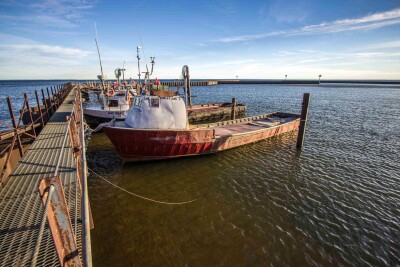A federal court has upheld the National Marine Fisheries Service decision to implement changes to the Gulf of Mexico reef fish management and reallocate more red grouper to the recreational fishing sector.
U.S. District Court Judge Timothy J. Kelly in a Jan. 6 opinion said the agency is acting properly in enacting Amendment 53 to the reef management plan, approved by the Gulf of Mexico Fishery Management Council over strenuous objections from the commercial fishing industry.
Amendment 53 was challenged in the District of Columbia federal dcourt by the Galveston, Texas-based Gulf of Mexico Reef Fish Shareholders Alliance, the A.P. Bell Fish Company, of Cortez, Florida, and the Southern Offshore Fishing Association, a longliner group based in Madeira Beach, Florida.
The Charter Fishermen’s Association joined in by filing an amicus, or “friend of the court” legal brief. While nominally part of the recreational sector, the charter captains said they agreed with commercial fishermen that Amendment 53 could ultimately hurt the red grouper resource and fishery.
The case was heard Oct. 18, with arguments that focused on the amendment’s effect of reducing the annual commercial allocation to 59.3 percent, down from 76 percent, and increasing the recreational allocation from 24 percent to 40.7 percent.
In his 40-page opinion, Judge Kelly turned aside the arguments of the plaintiffs, writing that NMFS had acted properly in its analysis of the red grouper fishery – including the revised methodology for estimating recreational catches.
That new process erodes accountability and is leading the way toward similar reallocations in other fisheries, the Gulf of Mexico Reef Fish Shareholders Alliance says.
Among his explanations, Kelly dealt with the accountability argument in his opinion.
“Given the quota system in place here, the Court sees no reason to find the accountability measures inadequate,” the judge wrote. “The recreational quota here is expressed in landings, and that number accounts for other sources of fishing mortality via estimations that originate with the latest stock assessment.
“The Service (NMFS) monitors recreational landings, and when landings are projected to reach the quota, the Service must ‘close the recreational sector for the remainder of the fishing year.’ So long as the estimates of total fishing mortality are consistent, that procedure will ensure the recreational sector stays beneath the total fishing mortality projected in the last stock assessment and incorporated into the recreational catch limit.
“Lacking any reason to believe those estimates produce inconsistent results, the Court finds the account- ability measures in place adequate.”
In a statement Monday, the Gulf of Mexico Reef Fish Shareholders Alliance said Amendment 53 “increases the number of red grouper discarded dead and wasted by recreational anglers; increases the likelihood that red grouper will be overfished; reduces the size and productivity of the red grouper stock.”
The ultimate effect will be to reduce the red grouper available for all fishermen and hurt “commercial fishing families and seafood consumers by reducing the commercial quota, partially to offset the increased waste that will be generated by recreational anglers,” the group says.
“Commercial fishermen, seafood suppliers, and members of the seafood-consuming public are extremely disappointed in the court’s decision,” said Eric Brazer, deputy director of the alliance. “Our livelihoods rely on healthy fish populations and management decisions that bolster stock health, not harm it. We are exploring all options.”







